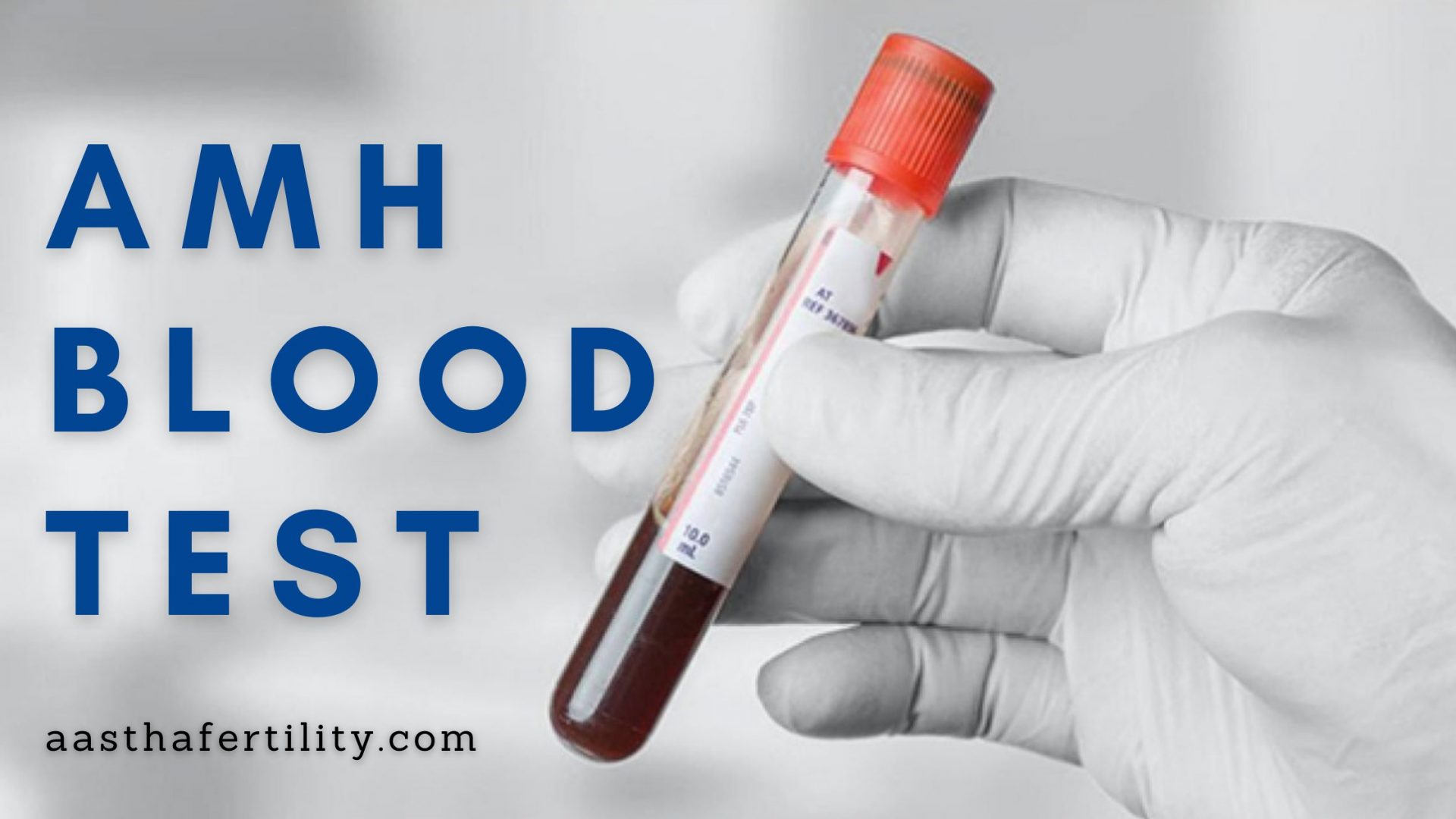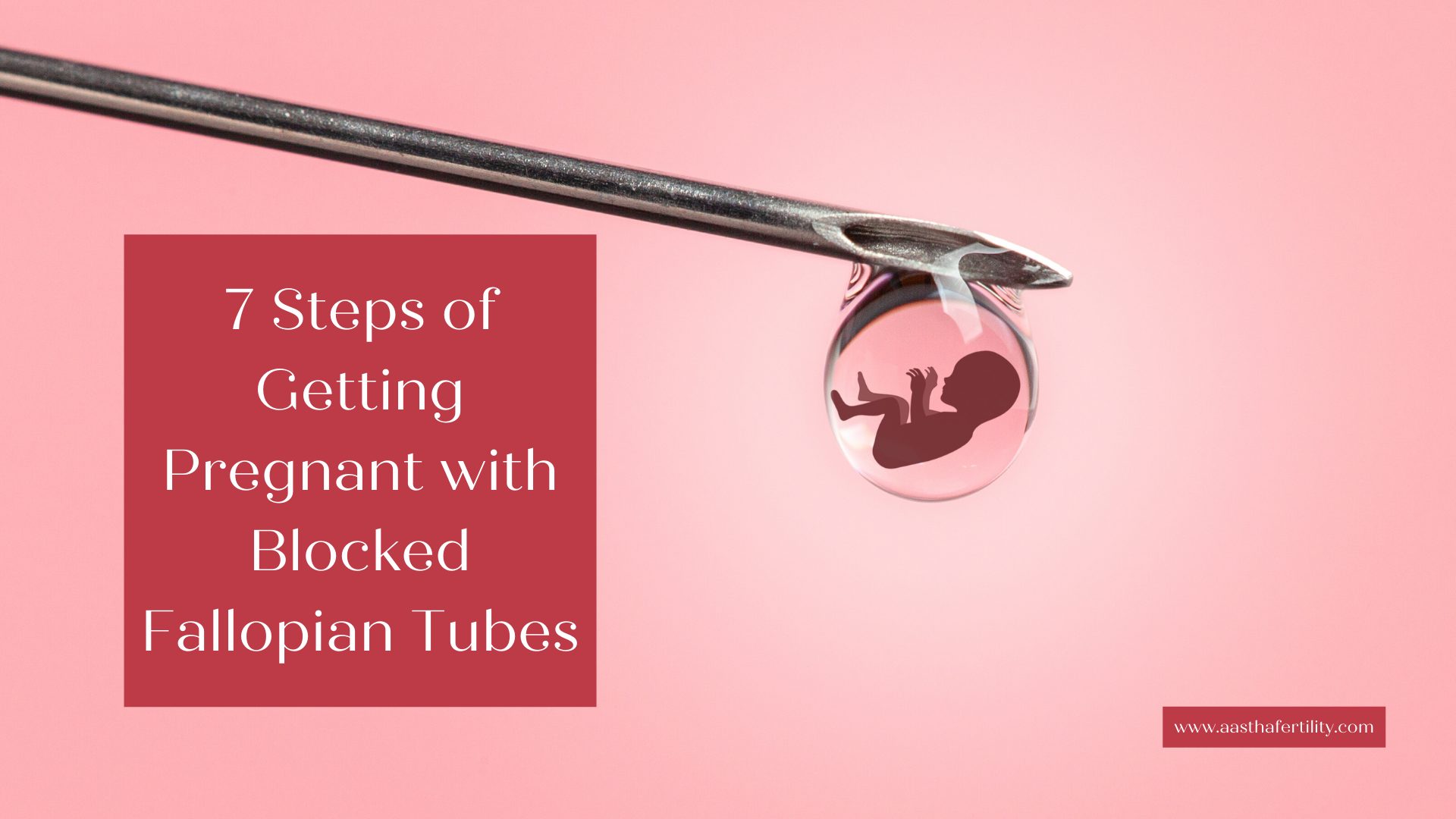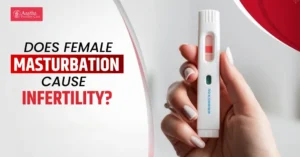Table of Contents
ToggleDid you know your pregnancy and AMH are closely related to each other?
In simple terms, your AMH levels mirror your fertility (ovarian reserve) or your ability to conceive.
In today’s fast-paced lifestyle, fertility challenges have become increasingly common, and many women find themselves hearing from their gynecologists about the need to boost their AMH levels.
But some questions always remain in mind: why is AMH so important for your pregnancy, and how to increase AMH levels to improve your chances of conception?
Let’s dive deeper to understand.
What is AMH, and Why is it Important?
AMH stands for Anti-Mullerian Hormone. It is a protein produced by cells in your ovaries that is often used as an indicator of your ovarian reserve. In short, the higher or lower the AMH is, so is your ovarian reserve.
However, AMH is not directly related to your menstrual cycle but when it comes to pregnancy, AMH plays a significant role.
Your AMH is primarily determined by factors such as age, lifestyle factors, surgical interventions, or underlying medical conditions.
Having low AMH doesn’t mean conception is impossible, a healthy lifestyle, the right strategies, and expert advice can help you to improve AMH levels and support overall fertility. If you’re also planning to conceive and looking for ways to increase AMH levels. This blog will become your guide.
Let’s explore how to increase AMH levels naturally.
How to Increase AMH Levels? (11 Ways)
If you are struggling to conceive due to low AMH levels, this blog will address all your concerns. Drawing from her 17 years of experience, Dr. Namita Kotia (IVF Specialist in Jaipur) has outlined 11 effective strategies to help answer your question on how to increase AMH levels and improve your fertility.
1. Healthy Diet
We all know that food fuels our bodies. Whether you want to conceive or not, a healthy diet is certainly a way to healthy life.
Incorporating a nutrient-rich and healthy diet into your routine can help you to increase your AMH levels or boost fertility.
Foods rich in antioxidants, omega-3 fatty acids, vitamins, and other minerals nourish your body and enhance overall reproductive health.
Include the following foods in your diet such as berries, spinach, broccoli, nuts, avocados, eggs, fish, seeds, and lean meats help you to improve overall reproductive health.
2. Reduce Stress
Nowadays, stress has become a common problem among individuals, but few of them are aware of the fact that stress negatively impacts your fertility.
Chronic stress can not only impact your hormonal balance but also lower AMH levels.
Certain practices such as meditation, yoga, and deep-breathing exercises can help you to manage stress effectively. According to a study by the National Library of Medicine, Yoga is an effective stress management tool, which can positively impact your fertility and help couples conceive.
3. Avoid Smoking
One of the studies by the National Library of Medicine revealed that heavy smoking can directly impact AMH levels. The toxins present in cigarettes can damage ovarian cells and accelerate the loss of eggs.
Life Changing Experiences with Aastha Fertility - From Doubt to Success
Therefore, if you’re planning to conceive and want to improve your AMH levels, quitting cigarettes will certainly help you.
4. Maintain a Healthy Weight
People often misunderstand that their weight doesn’t have anything to do with their fertility. But the fact says something else.
According to the US Department of Health and Human Services, Overweight and obese women often have higher levels of leptin which can disrupt hormones, increasing the risk of irregular cycles and anovulation (failure to ovulate).
Maintaining a healthy weight is also crucial to boost fertility. Being overweight or underweight, both conditions can disrupt your hormonal balance, affecting your AMH levels.
But how would you assess what is an ideal weight for you?
BMI, Body Mass Index, is a common metric to estimate an individual’s ideal weight based on their height. You can also consult a nutritionist or healthcare provider for personalized advice if needed.
5. Exercise
Physical activities like yoga, dance, aerobics, pilates, or walking can enhance blood flow to the ovaries, leading to improved overall reproductive health.
In addition, activities like cycling and swimming can also be beneficial. Choosing an exercise that suits you the best and keeps you motivated is the key to maintaining overall reproductive health.
5. Sleep Well
A deep and quality sleep is essential for maintaining hormonal health. Air for at least 7-8 hours of uninterrupted sleep every night.
A consistent sleep schedule helps regulate the release of reproductive hormones, which can positively impact your AMH levels.
6. Limit Alcohol Intake
Alcohol consumption can disrupt the balance of several reproductive hormones such as estrogen, gonadotropins, etc., that are essential for regulating the menstrual cycle and ovulation, impacting the AMH directly.
7. Stay Hydrated
Staying hydrated helps you to maintain optimal cellular function, including the cells involved in ovarian health.
Proper hydration also helps to maintain optimal blood flow to the ovaries, which may positively impact hormones.
If you’re looking for ways on how to increase AMH levels, consider drinking at least 8-20 glasses of water daily, and do not forget to include herbal tea and detox water in your daily routine for more benefits.
8. Avoid Exposure to Toxins
Exposure to harmful chemicals and toxins such as pesticides, plastic containers with BPA, and industrial pollutants can decrease AMH levels, affecting your fertility significantly.
To save yourself from these toxins, opt for organic products. Rather than plastic, choose glass or stainless-steel containers for food storage.
9. Vitamin D
Vitamin D is an essential nutrient for reproductive health. You would be surprised to know that in research presented by the National Library of Medicine, 64.28% of infertile women were Vitamin D deficient, suggesting a link between low Vitamin D levels and reduced fertility.
Sunlight is a good source of Vitamin D. Apart from that a few changes in your diet such as consuming fatty fish, fortified dairy products, and egg yolks can also help you to enhance your fertility. You can also go for Vitamin D supplements but under the guidance of a doctor.
Read Also: AMH Blood Test: Is it Accurate? How to Interpret the Results
10. Consult a Specialist
Last but not least, before opting for anything or making any changes in your lifestyle, it’s necessary to consult an expert.
A specialist can identify the underlying causes of low AMH levels and recommend tailored treatments such as hormone therapy, required lifestyle changes, or advanced fertility procedures like ICSI, IUI, or IVF.
Conclusion:
Understanding AMH and how to increase AMH levels is a crucial step toward improving your fertility. Adopting healthy lifestyle changes, focusing on proper nutrition, and consulting with an expert can make your parenthood dream come true.
Don’t let the low AMH become a barrier to your parenthood dream, consult with our experts and take a first step towards your parenthood.
FAQs: How to Increase AMH Levels?
Q1. Which Food Increases AMH levels?
Certain foods can help to improve overall reproductive health and may contribute to better ovarian function and enhanced AMH levels. For example:
- Leafy Green Vegetables like spinach and kale are rich in folate and antioxidants that support ovarian health.
- Fruits like berries are full of antioxidants to combat oxidative stress in the ovaries.
- Salmon and Sardines like fatty fish are rich in omega-3 fatty acids, which can improve blood flow to the ovaries.
- Dairy products like curd and paneer provide calcium and Vitamin D which is essential in ovarian function.
- Whole grains like quinoa and oats also provide complex carbohydrates that are necessary for proper ovarian function.
However, food may not alone be responsible for AMH levels but a nutrient-rich diet plays a crucial role in overall reproductive health.
Q2. Can AMH level increase?
AMH levels naturally decline with age and it’s not possible to increase AMH levels directly. However certain lifestyle changes and medical interventions can help you to conceive such as adopting a healthy diet, structuring a routine, reducing stress, and avoiding alcohol and smoking can contribute to better reproductive health.
You can also consult with a doctor or an expert for fertility treatment and supplements that can help you enhance ovarian health.
Q3. Can We Increase AMH Levels?
However, it’s not possible to restore the AMH level but conception is possible with the help of expert advice and a few lifestyle changes.
Eating a balanced and nutrient-rich diet, indulging in stress-reducing activities such as yoga and meditation, and taking specific supplements under medical guidance can improve your overall reproductive health.
Q4. Can AMH be Increased?
AMH depends on factors like age, genetic predisposition, and other health conditions, hence it can’t be restored.
However following a healthy and nutrient-rich diet, indulging in various stress relief activities such as yoga and meditation, and receiving supplements under medical advice can help improve overall reproductive health as well.
Q5. Is It Possible to Increase AMH Levels?
AMH levels reflect ovarian reserve, and while they can improve, they cannot fully reverse the natural decline that comes with aging.
Consciously eating a healthy, nutrient-rich diet, undertaking stress-relieving activities such as yoga and meditation, as well as taking certain supplements under medical guidance, can boost overall reproductive health.









Leave a comment